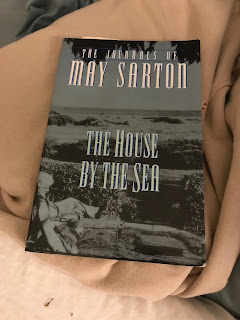"The untouched ones spend their luck without a thought, believing they deserve it" (p 462).
I am so far behind in posting about Barbara Kingsolver’s The Lacuna. Simpler books that I like less are much easier to review. The characterization, plot, and themes of The Lacuna were complex enough to force me to procrastinate about my blog post. I suppose the simplest way to describe the book is to say that it follows one man’s life from childhood to death as he lives through crucial turning points in history in both Mexico and America. The main character, Harrison Shepherd, is involved directly in so many important occurrences as to lend a Forrest Gump feel to the plot. I’ve always liked Kingsolver’s fiction and nonfiction, but with The Lacuna, her work seems to have matured and expanded beyond even what I had come to expect.
The first important theme is Harrison’s challenging relationship with his own mother. He grows up feeling like a neglected satellite orbiting a beautiful, but dangerous, star. This theme carries over into the next segment of his life where he happens upon a job in the Diego Rivera / Frida Kahlo household. Harrison develops another close but tumultuous relationship with Frida, who overtly introduces the lacuna theme, which was only hinted at in the prior sections of the book. She repeatedly tells Harrison that the most important thing about a person is the thing you do not know about him. I continue to struggle with this idea. Intuitively, I sense an important revelation in these words that I have not been able yet to grasp rationally. The lacuna theme is carried throughout the book in both physical occurrences: an underwater cave, a lost notebook; and in figurative ones: the idea of important gaps in our knowledge of one another. Toward the end of the book, Violet Brown, who has been Harrison’s secretary for years, says, "Those news men could not make a thing true just by saying so. It’s only living makes life" (p 445). I like the extension of the idea of how when we have gaps in our knowledge of others, we often project on them what we would like to pretend fills those gaps. I suspect that most of the time, we err in our suppositions.
The first important theme is Harrison’s challenging relationship with his own mother. He grows up feeling like a neglected satellite orbiting a beautiful, but dangerous, star. This theme carries over into the next segment of his life where he happens upon a job in the Diego Rivera / Frida Kahlo household. Harrison develops another close but tumultuous relationship with Frida, who overtly introduces the lacuna theme, which was only hinted at in the prior sections of the book. She repeatedly tells Harrison that the most important thing about a person is the thing you do not know about him. I continue to struggle with this idea. Intuitively, I sense an important revelation in these words that I have not been able yet to grasp rationally. The lacuna theme is carried throughout the book in both physical occurrences: an underwater cave, a lost notebook; and in figurative ones: the idea of important gaps in our knowledge of one another. Toward the end of the book, Violet Brown, who has been Harrison’s secretary for years, says, "Those news men could not make a thing true just by saying so. It’s only living makes life" (p 445). I like the extension of the idea of how when we have gaps in our knowledge of others, we often project on them what we would like to pretend fills those gaps. I suspect that most of the time, we err in our suppositions.
Being a Kingsolver novel, issues of social justice occur throughout. There is a scene early in the book about the Bonus Army March, as well as a section about the Advancing American Art auction, which was a perfect example of typical government forethought and efficiency, neither of which I knew anything about. Then later, during the period that Harrison works for Frida, Leon Trotsky lives with them, leading to much discussion about the Russian Revolution and about revolutions in general. The last part of both the book and of Harrison’s life is spent amid the Communist fear-mongering mania of mid-twentieth century America. Many of the themes and occurrences during this embarrassing period of our history resonate in the fears and abuses that occurred in America in the post 9/11 years, reminding me yet again of the oft-repeated and hard to cite adage that forgetting history dooms us to repeat it.
I suppose I would say that the most important theme that I find in this or in any other Kingsolver work is the idea that happiness should belong to us all, that being different shouldn't exclude you from the joy and beauty of this life, and that in the end, love and acceptance are the only things that really matter.



No comments:
Post a Comment